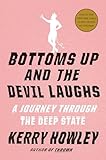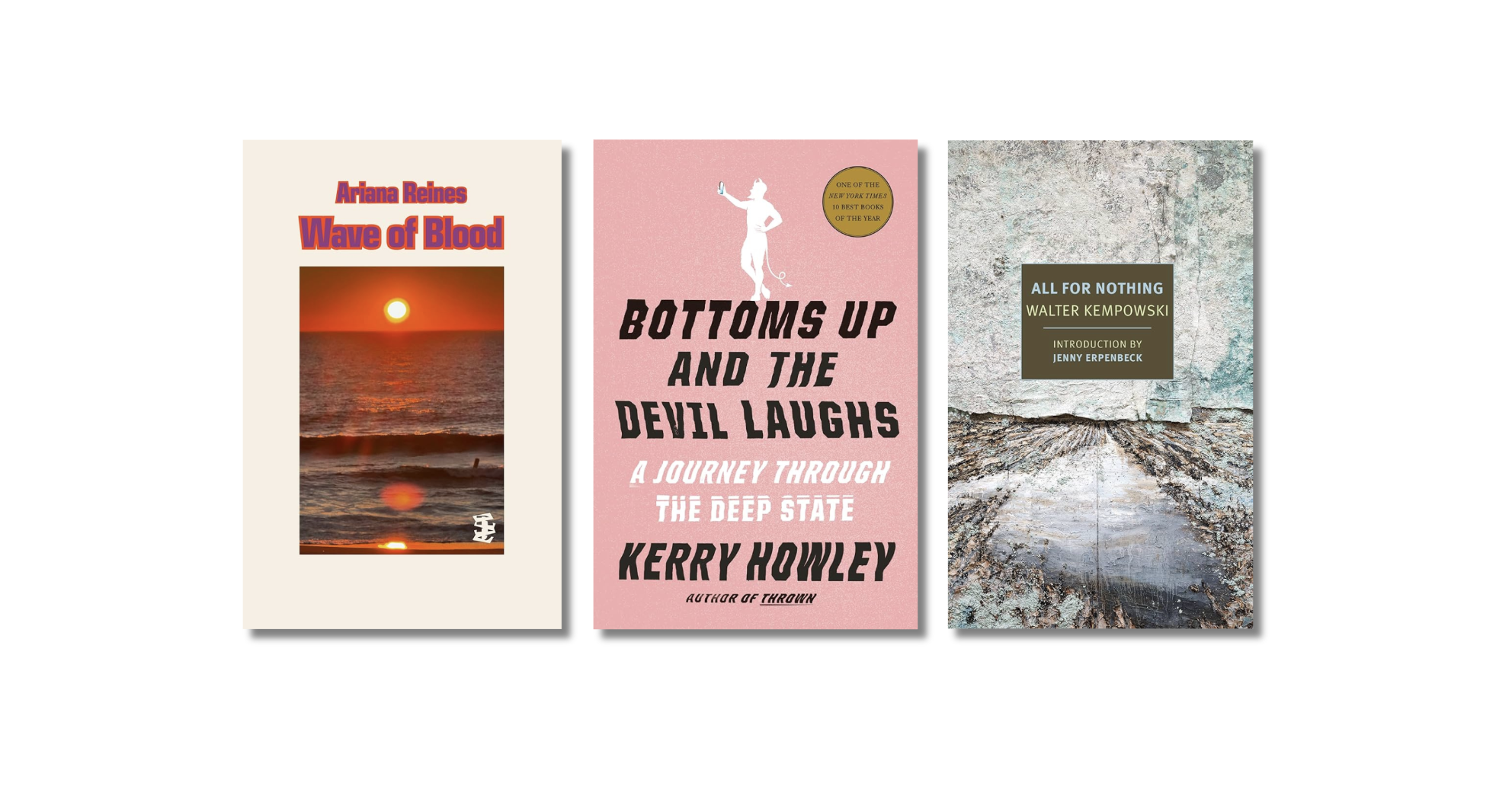2024 was a year when I could never write quickly enough and there was always something overdue. For the first half of the year I was revising Health and Safety. For the second half I was doing presidential campaign coverage for The New Yorker and promoting the new book after it came out in September. I was traveling more than I was home and I didn’t get a lot of reading done, but this is what I can recall…
Molly by Blake Butler: It’s so difficult to write about the people you’re closest to and the details of an intimate relationship. I was very impressed with this.
 I Heard Her Call My Name by Lucy Sante: I reviewed this humble and honest memoir of transition for The New Yorker here.
I Heard Her Call My Name by Lucy Sante: I reviewed this humble and honest memoir of transition for The New Yorker here.
 Playboy by Constance Debre: Debre’s little descriptions of the bourgeois women she seduces and then discards are devastating.
Playboy by Constance Debre: Debre’s little descriptions of the bourgeois women she seduces and then discards are devastating.
 Nicolas Pages by Guillaume Dustan: I wasn’t quite as absorbed with this as I was with the first volume of Dustan’s collected novels published by Semiotexte, which was one of my favorite books in the year I read it, but this was still great. I liked how the main character keeps trying to play this song by Garbage for his friends.
Nicolas Pages by Guillaume Dustan: I wasn’t quite as absorbed with this as I was with the first volume of Dustan’s collected novels published by Semiotexte, which was one of my favorite books in the year I read it, but this was still great. I liked how the main character keeps trying to play this song by Garbage for his friends.
 Nostromo by Joseph Conrad: Sometimes a person needs to read a little Joseph Conrad.
Nostromo by Joseph Conrad: Sometimes a person needs to read a little Joseph Conrad.
 White Out by Michael Clune: I’ve been coming across strong recommendations for this heroin memoir for years and I finally got around to reading it. The writing is so precise and distinct—on the level of craft I think it’s one of the best first-person memoirs I’ve read. I’m never going to do heroin so I like reading books about what it feels like. The squalor though.
White Out by Michael Clune: I’ve been coming across strong recommendations for this heroin memoir for years and I finally got around to reading it. The writing is so precise and distinct—on the level of craft I think it’s one of the best first-person memoirs I’ve read. I’m never going to do heroin so I like reading books about what it feels like. The squalor though.
 Down the Drain by Julia Fox: I’m afraid I was exhausted with Julia Fox’s negative relationship patterns by the end of this book.
Down the Drain by Julia Fox: I’m afraid I was exhausted with Julia Fox’s negative relationship patterns by the end of this book.
 Bottoms Up and the Devil Laughs by Kerry Howley: This book basically narrativizes and adds detail to a lot of news stories about the post 9/11 security state. In doing so it reveals how much privacy we’ve surrendered. News breaks so quickly now a book like this is important for its revelation of a chronology of cause and effect. I really admired the journalism in it.
Bottoms Up and the Devil Laughs by Kerry Howley: This book basically narrativizes and adds detail to a lot of news stories about the post 9/11 security state. In doing so it reveals how much privacy we’ve surrendered. News breaks so quickly now a book like this is important for its revelation of a chronology of cause and effect. I really admired the journalism in it.
 Nuclear War: A Scenario by Annie Jacobsen: Turns out it’s better to be instantly vaporized in the white hot center of the thing than to survive in the margins, where no one will come for you and you will experience horrific suffering.
Nuclear War: A Scenario by Annie Jacobsen: Turns out it’s better to be instantly vaporized in the white hot center of the thing than to survive in the margins, where no one will come for you and you will experience horrific suffering.
 Blackouts by Justin Torres: I reviewed this for The London Review of Books, here. They cut the line where I compared it to Tuesdays with Morrie. The edition I read had sepia-toned font.
Blackouts by Justin Torres: I reviewed this for The London Review of Books, here. They cut the line where I compared it to Tuesdays with Morrie. The edition I read had sepia-toned font.
 All for Nothing by Walter Kempowski: Picked this up for $7 on a bargain table, total page-turner thriller about clueless Nazis in denial in East Prussia at the very end of the World War II who don’t evacuate until it’s too late. Everyone is so self-interested and myopically confident that it’s surprisingly funny even though almost everyone dies at the end. It should be a movie. In general the NYRB Classics about WWII don’t disappoint, this was no exception.
All for Nothing by Walter Kempowski: Picked this up for $7 on a bargain table, total page-turner thriller about clueless Nazis in denial in East Prussia at the very end of the World War II who don’t evacuate until it’s too late. Everyone is so self-interested and myopically confident that it’s surprisingly funny even though almost everyone dies at the end. It should be a movie. In general the NYRB Classics about WWII don’t disappoint, this was no exception.
 Big Sur by Jack Kerouac: I listened to the audiobook of this driving up to Big Sur from LA for a story. Ethan Hawke narrates and really hams it up. The main character is a Kerouac-type who has become famous for a book about a road trip. Now he is trying to dry out from alcohol and he just can’t manage, and he hates himself for it. I was interested by how well Kerouac seemed to understand what was ruining his life and health and yet was totally unable to change it.
Big Sur by Jack Kerouac: I listened to the audiobook of this driving up to Big Sur from LA for a story. Ethan Hawke narrates and really hams it up. The main character is a Kerouac-type who has become famous for a book about a road trip. Now he is trying to dry out from alcohol and he just can’t manage, and he hates himself for it. I was interested by how well Kerouac seemed to understand what was ruining his life and health and yet was totally unable to change it.
 Eve’s Hollywood by Lili Anolik: I enjoyed this Eve Babitz biography and I’m excited to read Anolik’s new book about Babitz and Didion.
Eve’s Hollywood by Lili Anolik: I enjoyed this Eve Babitz biography and I’m excited to read Anolik’s new book about Babitz and Didion.
 Small Rain by Garth Greenwell: This was assigned to me to review. I’ve now blown like three deadlines, unfortunate because it’s a great book, but I’ll figure it out. My favorite thing about this book is that it’s set in the ICU and the medical scenes are fascinating. Hopefully by the time this listicle comes out the review will be done. (Update: it’s not.)
Small Rain by Garth Greenwell: This was assigned to me to review. I’ve now blown like three deadlines, unfortunate because it’s a great book, but I’ll figure it out. My favorite thing about this book is that it’s set in the ICU and the medical scenes are fascinating. Hopefully by the time this listicle comes out the review will be done. (Update: it’s not.)
 My Phantoms by Gwendoline Riley: All my friends kept telling me they were “obsessed” with this book but I think it hit too close to home for me. I sympathized more with the awful sloppy mother character than to her smug-married vegan daughter. I kept thinking it was sexist or something, I don’t know, I could recognize its quality but it made me upset.
My Phantoms by Gwendoline Riley: All my friends kept telling me they were “obsessed” with this book but I think it hit too close to home for me. I sympathized more with the awful sloppy mother character than to her smug-married vegan daughter. I kept thinking it was sexist or something, I don’t know, I could recognize its quality but it made me upset.

Rejection by Tony Tulathimutte: I already told Tony this in person but Rejection was a little bit like if David Foster Wallace’s Brief Interviews With Hideous Men and Patricia Lockwood’s No One Is Talking About This had a baby together.

Wave of Blood by Ariana Reines: This was my favorite new book of 2024 but I don’t know how to describe it. Ariana talked to me about Health and Safety for Bookforum and then gave me a copy of the book. I read it on planes while reporting on the presidential campaign in October. It’s a simple first-person book that begins in October 2023 and is about being alive and seeing Israel’s bombing of Gaza on your phone, among other things, including Milton’s Paradise Lost. Two texts I was reminded of while reading it were Journey to a War by W.H. Auden and Christopher Isherwood and the Pablo Neruda poem “I’m Explaining a Few Things.” While I was reading it a window opened with a glimpse of another way of thinking. It made me want to try and write differently, and I started taking notes about the airports I was in, which was the kind of interest in the details of the world around me I hadn’t felt for a long time. Even in the middle of being so burnt out on writing, this book made me want to write again. I’m grateful to Ariana Reines for this book.
 Mona Lisa Overdrive by William Gibson: This was the first book I read after I got home from covering Kamala Harris’s concession speech at Howard University. That weekend I stopped reading the news, went to a fourteen-hour rave, and read science fiction.
Mona Lisa Overdrive by William Gibson: This was the first book I read after I got home from covering Kamala Harris’s concession speech at Howard University. That weekend I stopped reading the news, went to a fourteen-hour rave, and read science fiction.
 CRISPR People by Henry Greely: Since the election, I’ve been compelled to learn more about new technology. I interviewed Greely for a story I did about in vitro gametogenesis and read his book The End of Sex and the Future of Human Reproduction. This is a very good overview for the layperson.
CRISPR People by Henry Greely: Since the election, I’ve been compelled to learn more about new technology. I interviewed Greely for a story I did about in vitro gametogenesis and read his book The End of Sex and the Future of Human Reproduction. This is a very good overview for the layperson.
More from A Year in Reading 2024

